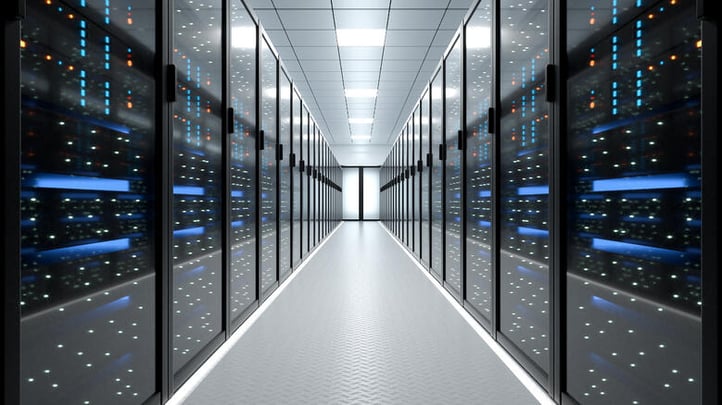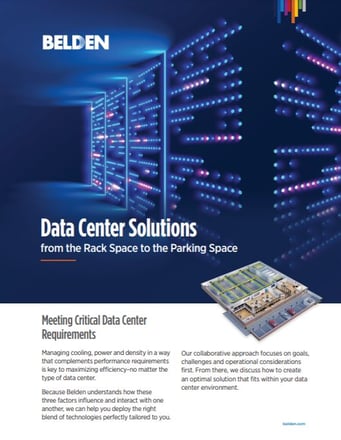Power keeps your data center infrastructure running—but power also impacts how much it costs to do so. The more efficiently you can use power, the lower your operating costs will be.

Determining a data center’s power usage effectiveness (PUE) helps establish a power-usage baseline. It is a ratio of available power to the amount of active power used by IT equipment. The goal is often to reach a ratio of 1; last year, the average data centers had a PUE of around 1.59. The higher your data center’s PUE, the greater indication that your data center could be operating more efficiently.
As you evaluate data center PUE, there are three important items to keep in mind that can affect your data center’s power efficiency:
- Voltage Level
- Power Stranding
- Zombie Servers
Let's break each of these down individually to learn just how important they are.

Voltage Level
High voltages allow data centers to be more efficient without using as much power. Across the United States, 480V power is typically brought into most data center facilities; however, in order to power data center equipment, the voltage is stepped down to either 208V or 120V.
To make this conversion, data centers rely on three-phase transformers. These transformers generate heat and are a contributing factor to efficiency loss. So every time you drop the voltage level down, you also lose efficiency and increase costs.
To increase efficiency, some large data centers are finding ways to use 480V instead of stepping it down. Google is a good example: Google distributes power directly to the rack at 480V AC with a three-phase rectifier that converts AC to DC within the rack.
Power Stranding
When data centers rely on three-phase power, it’s possible for power to become stranded.
This happens whenever the power distributed to a rack exceeds the amount of power it consumes during peak utilization. The impacts can be significant—multiplying a few kilowatts by the number of racks that fill your data center can add up. In some situations, stranded power can equal 50% of total power available.
To make sure your data center strands as little power as possible, it’s important to balance your power load properly across the three lines. Make sure power is spread out evenly and that everything runs at close to the same usage.
While power management is part of the equation, how you plug in things like servers and SANs also plays a role too. Connecting all storage hardware (which pulls a lot of power) at the bottom of the rack on line 3 while connecting switches (which don’t pull much power) at the top of the rack on line 1 can lead to stranded power.
Zombie Servers
Zombie servers are pieces of equipment that continue to run while contributing nothing to compute resources. In other words, zombie servers consume power but don’t serve a purpose in running your data center.
Make sure your servers are working up to their full potential and capacity limits. Managed power distribution units (PDUs) that control power usage down to the outlet level can tell you whether a specific server is running any applications. If not, you can either put it back in use or pull the server out of the data center if it’s no longer needed—increasing your efficiency in return.
Do you need help maximizing your data center’s PUE? Belden’s uniquely collaborative approach prioritizes your goals, challenges and operational considerations. From there we can create the most optimal solution to fit within your unique environment.
Interested in learning more? Continue reading full blog post here >>
Resources
Download Data Center Solutions Guide >>
Contact your local Accu-Tech Representative to learn more about Belden solutions for your data center, or visit their vendor page here.




.png?width=58&height=58&name=X_logo_2023_(white).png)
